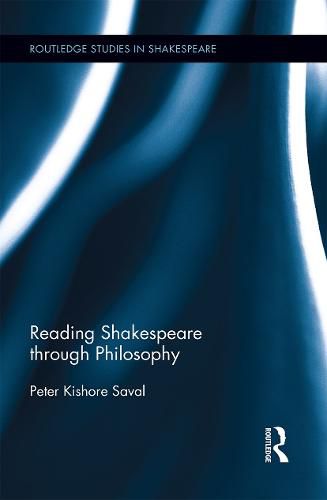Readings Newsletter
Become a Readings Member to make your shopping experience even easier.
Sign in or sign up for free!
You’re not far away from qualifying for FREE standard shipping within Australia
You’ve qualified for FREE standard shipping within Australia
The cart is loading…






Reading Shakespeare through Philosophy advocates that the beauty of Shakespearean drama is inseparable from its philosophical power. Shakespeare’s plays make demands on us even beyond our linguistic attention and historical empathy: they require thinking, and the concepts of philosophy can provide us with tools to aid us in that thinking.
This volume examines how philosophy can help us to re-imagine Shakespeare’s treatment of individuality, character, and destiny, particularly at certain moments in a play when a character’s relationship to space or time becomes an enigma to us. The author focuses on the dramatization of seemingly magical relationships between the individual and the cosmos, exploring and rethinking the meanings of ‘individual’, ‘cosmos’ and ‘magic’ through a conceptually acute reading of Shakespeare’s plays. This book draws upon a variety of thinkers including Plato, Aristotle, Leibniz and Kant, in search of a revitalized philosophical criticism of Julius Caesar, Love’s Labor’s Lost, The Merchant of Venice, Timon of Athens, and Twelfth Night.
$9.00 standard shipping within Australia
FREE standard shipping within Australia for orders over $100.00
Express & International shipping calculated at checkout
Reading Shakespeare through Philosophy advocates that the beauty of Shakespearean drama is inseparable from its philosophical power. Shakespeare’s plays make demands on us even beyond our linguistic attention and historical empathy: they require thinking, and the concepts of philosophy can provide us with tools to aid us in that thinking.
This volume examines how philosophy can help us to re-imagine Shakespeare’s treatment of individuality, character, and destiny, particularly at certain moments in a play when a character’s relationship to space or time becomes an enigma to us. The author focuses on the dramatization of seemingly magical relationships between the individual and the cosmos, exploring and rethinking the meanings of ‘individual’, ‘cosmos’ and ‘magic’ through a conceptually acute reading of Shakespeare’s plays. This book draws upon a variety of thinkers including Plato, Aristotle, Leibniz and Kant, in search of a revitalized philosophical criticism of Julius Caesar, Love’s Labor’s Lost, The Merchant of Venice, Timon of Athens, and Twelfth Night.